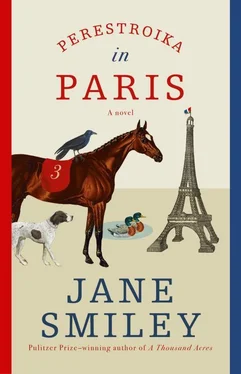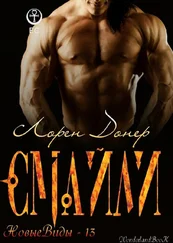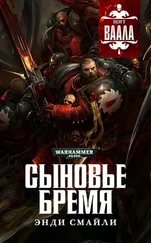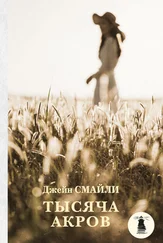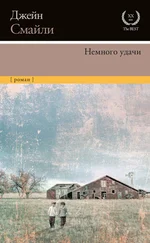But here came the human, with something in his hand. He removed the end of that something with a pop, and out of it rolled another ball. He bounced it, and it bounced very high. Frida dropped her bag, leapt into the air, and caught it. It was light and slightly furry, just the sort of ball she had been looking for. He laughed. She went to her bag and pawed at it, but although she could smell the money, she couldn’t get at it. She dropped the ball into the bag and dragged the bag to the human. Then she did something that Jacques had warned her against. She barked. Only one bark. She put her paw on the bag. The human stepped back, but it seemed he understood—he came over, reached into the bag, and felt around. A moment later, he pulled out a bill. Now he really laughed, and he said, “Well, I have to say, I’ve never seen a dog like you before.” He bowed slightly, and said, “Would you please wait here, miss?” He slouched away. When he returned, he put the thing that the ball had come in into her bag, then helped her take the bag in her jaws. Finally, he squatted in front of her, patted her on the head, and said, “Merry Christmas, pretty one.” He accompanied her to the door, opened it for her, and, after she went outside, locked it behind her.
The sky had clouded over, and dusk was beginning to gather. It wasn’t far to the house now, but the bag was heavier than before. Sometimes she carried it, sometimes she dragged it, but slowly, gently. Though there were no humans about at all, there were lights everywhere, and the faint sound of music, too—the whole city was brilliant. Only Étienne and Madame de Mornay’s house was dark and silent—just one small light in one window. The gate was open. Frida carried the bag up the step to Étienne’s entrance and set it against the door. She was exhausted. She passed Paras without saying anything, and lay down in her alcove. She was asleep at once. Darkness fell.

AN HOUR OR so later, Kurt was watching Madame de Mornay prepare herself for her expedition to the church for Christmas Mass—not Midnight Mass, no more of that, but afternoon Mass on the next day. The room was dark, but Kurt had good night vision, like Paras. The broadcast that he got from her through his whiskers was, he thought, the most interesting thing about her—she gave off almost no signal. According to his rat instincts, she was hardly alive—maybe not alive—and yet she was very active for a dead being. And she was especially expert and adept at grooming, something that rats paid considerable attention to. She laid out her clothes, brushed them off. She let her fingertips wander over the fabric, seeking rips and holes and suspicious little spots that might be stains.
Madame had been reflecting a good deal these last few days, and she was willing to admit that this might be her last visit to the church, at least under her own power. One thing that Étienne didn’t know was that her birthday was January 6, the Feast of the Epiphany. When she was a child, she had celebrated every birthday with a Cake of the Three Kings, really a sweet brioche molded into a circle with some sugar sprinkled over it. There was a tiny little man hidden within, and that had been one of her birthday presents. She had been eight or nine before she realized that others celebrated the arrival of the Three Kings at the Manger as her family did. She would be ninety-seven! How could she be so amazed at that number? She had stopped celebrating birthdays when she turned sixty, but, alas, they had not stopped coming around.
Kurt was quite familiar with Madame’s wardrobe. He recognized that the items Madame was investigating were for going outside. He was ever more eager to get there, and so, watching Madame, he contemplated his strategy for going with her. He had looked into her bag, which was in the center of the desk, but it was a cramped space. He had also eased himself underneath the hat she always wore, but that space would be filled with her head. He might sit on top of the hat and hope for the best, but he was too heavy for the hat, and he knew that Madame would notice if it was out of its customary shape. He might jump from one of the shelves beside the door onto her shoulder, but even if he made it, she would brush him off, probably violently, and then anything could happen. Conrad said that they were safe and well fed, and not every life was perfect, and that doe Kurt yearned for could show up at any time, there was always hope, but she never had, and Kurt had made up his mind to gamble on adventure rather than remain passive.
He’d thought that the boy might carry him outside, but as the days passed after the petting incident, Kurt lost his faith that the boy could be trusted. The boy broadcast a strong signal. Conrad, too, was suspicious of the boy, who was small but quick. Had he ever told Kurt the story of Hector, one of his ancestors? In this very house, many generations ago, there had been a human who left crumbs for Hector, who made agreeable little noises and seemed unusually friendly. After a whole season of this courtship, Hector had finally skittered onto the counter in the cuisine, going for some crispy fried pork fat, and what had happened? That human had banged the lid of a large heavy pot right down upon Hector, trapping him, breaking his tail, killing him. That was a human for you, according to Conrad, and Kurt had nothing to offer in contradiction. Conrad maintained that the territorial disputes between rats and humans had been going on forever and ever and ever and ever. Humans hated the very thought of rats’ claiming the taxes, in the form of food, that were their rattish right, of rats’ making perfectly good use of the otherwise useless spaces within walls. At some lost date in the past, rats and humans might have joined forces against cats, which were much more ruthless than any rat, but humans had been colonized by cats, and so that possibility was gone, and, Conrad advised, Kurt should look on the bright side, enjoy a comfortable life that even brown rats would appreciate.
Now Madame made her way to her bed and turned down the coverlet. She was humming. The room was dark, but that was all the same to Madame. She sat on the edge of the bed and kicked off her slippers, then arranged herself. It was Christmas, possibly her last Christmas. She closed her eyes and, looking within again, decided to remember a single thing from each of her ninety-six Christmases—that would be her celebration. Her first memory, she thought, and a vivid one, was of being carried into the grand salon in her mother’s arms, and seeing the whole room lit with candles. She remembered hiding her eyes against her mother’s silk collar, then turning to look again. She must have been almost two. Her second memory was of a doll, dressed in a red velvet gown, its tiny black shoes sticking out from under the hem of the dress. Perhaps her grandmother’s couturière had made the dress? Somehow the doll and her grandmother rested together in her mind. The third Christmas would have taken place in 1915—she had no memory of it, for it must have been a sad Christmas, the year her father died in the Battle of Loos. In 1916, she would have been four—her memory was of the cuisine, of standing on a stool beside the table, placing bits of candied orange peel on the tips of the meringues that Angélique, the chef de cuisine, was making. That was a happier memory. Madame de Mornay fell asleep.
Paras did not go into the house every night, nor did she visit Anaïs every night. Her days and nights had fallen into a pleasant rhythm, but it was only a rhythm, not a schedule. At any rate, on Christmas Eve, she had a nice long sleep in the courtyard, wondering only once where Frida had been and why she was sleeping and sleeping and sleeping. Paras of course noticed the bag beside the door, but it was not her purse, had no distinct odor. Raoul might have investigated it, but he was occupied in other parts of the city.
Читать дальше
